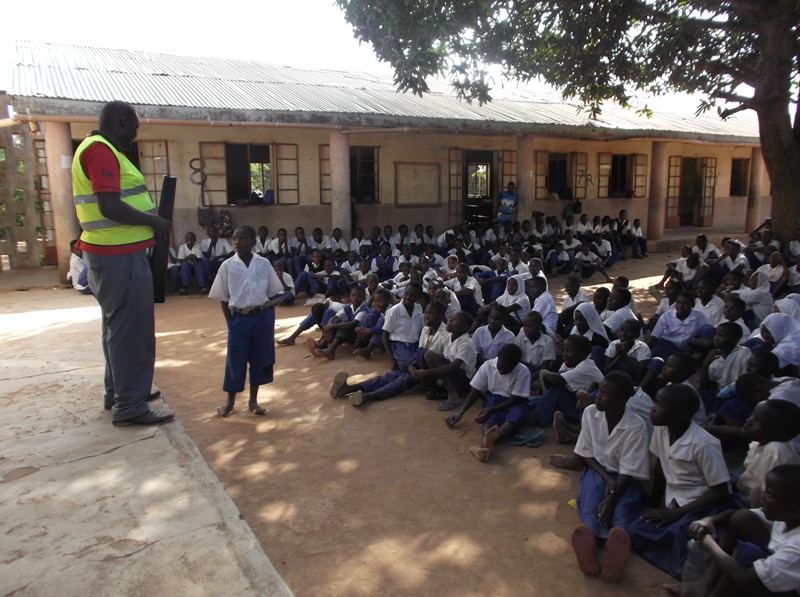
On 5 October, the Alliance will launch its new publication Walking the Talk, which presents the Alliance and its members’ response to the SDGs. A number of member stories are included. Read below an extract from the publication: Betty’s Story.
“Betty Omoro is using data collection to inform evidence-based action for road safety education along a rehabilitated transport corridor. Since returning from Memphis, Betty has conducted eight community awareness sessions; 10 school-based road safety sessions, with formation of road safety clubs at those schools, involving 400 students; and road safety training for 50 construction workers and 50 motorcycle drivers.
As a logistics specialist working for a company with a fleet of motorbikes, Betty knew firsthand the effects of road crashes on her drivers and their families, and on the productivity of the company. She decided to apply her experience and insights more directly to the work of improving road safety with Smart Drivers Organization (SDO).
Poor roads in many parts of the world create life-threatening hazards for road users, and they hamper medical evacuations and the movement of goods to market. But rehabilitation of roads can create other dangers when the smooth surfaces invite heavier traffic and facilitate excessive speed and reckless practices.
In the coastal region of Kenya, where an important international corridor is being rehabilitated—the Bachuma Gate–Maji ya Chumvi section of the Nairobi–Mombasa Road—SDO partners with local traffic police to educate public service vehicle and long-distance truck drivers on speed reduction and to encourage enforcement. They also advise World Bank contractors on placement of rumble strips near school zones. SDO works directly with communities and schools along the road, engaging with local chiefs to assemble community members, opinion leaders, teachers and church leaders for road safety education sessions and activities. Those individuals then share information, education and communication materials with their students and residents of their villages.
Because of what she learned in the Alliance Advocate training, Betty has approached her work with a greater appreciation of the power of data to strengthen project implementation and impact. She learned to approach road safety challenges more methodically by identifying specific objectives and planning evidence-based advocacy and action. She has built a coalition with two other road safety and education actors in Kenya, Association for Safe International Road Travel and Pamoja. SDO and their partners then designed and carried out a knowledge, attitudes and practices (KAP) study to develop the evidence on which to base their work. The KAP findings are integral to ongoing planning and project implementation.
Betty says that she no longer works on a project just because it is called “road safety”; there must be evidence that justifies investment of resources in a specific project. She uses data to help her identify key problem areas, formulate specific objectives and select indicators that she uses to measure progress.
More effective reporting, another skill learned in Memphis, has drawn attention to SDO work and helped the organization to obtain two multiyear grants from the World Bank in two areas of the country where road rehabilitation projects are creating new challenges and opportunities for SDO as they work for safer roads in Kenya.”
The full publication will be released on 5 October 2017.